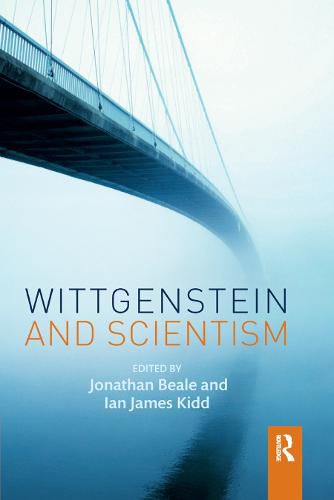Readings Newsletter
Become a Readings Member to make your shopping experience even easier.
Sign in or sign up for free!
You’re not far away from qualifying for FREE standard shipping within Australia
You’ve qualified for FREE standard shipping within Australia
The cart is loading…






Wittgenstein criticised prevailing attitudes toward the sciences. The target of his criticisms was ‘scientism’: what he described as ‘the overestimation of science’. This collection is the first study of Wittgenstein’s anti-scientism - a theme in his work that is clearly central to his thought yet strikingly neglected by the existing literature.
The book explores the philosophical basis of Wittgenstein’s anti-scientism; how this anti-scientism helps us understand Wittgenstein’s philosophical aims; and how this underlies his later conception of philosophy and the kind of philosophy he attacked.
An outstanding team of international contributors articulate and critically assess Wittgenstein’s views on scientism and anti-scientism, making Wittgenstein and Scientism essential reading for students and scholars of Wittgenstein’s work, on topics as varied as the philosophy of mind and psychology, philosophical practice, the nature of religious belief, and the place of science in modern culture.
Contributors: Jonathan Beale, William Child, Annalisa Coliva, David E. Cooper, Ian James Kidd, James C. Klagge, Daniele Moyal-Sharrock, Rupert Read, Genia Schoenbaumsfeld, Severin Schroeder, Benedict Smith, and Chon Tejedor.
$9.00 standard shipping within Australia
FREE standard shipping within Australia for orders over $100.00
Express & International shipping calculated at checkout
Stock availability can be subject to change without notice. We recommend calling the shop or contacting our online team to check availability of low stock items. Please see our Shopping Online page for more details.
Wittgenstein criticised prevailing attitudes toward the sciences. The target of his criticisms was ‘scientism’: what he described as ‘the overestimation of science’. This collection is the first study of Wittgenstein’s anti-scientism - a theme in his work that is clearly central to his thought yet strikingly neglected by the existing literature.
The book explores the philosophical basis of Wittgenstein’s anti-scientism; how this anti-scientism helps us understand Wittgenstein’s philosophical aims; and how this underlies his later conception of philosophy and the kind of philosophy he attacked.
An outstanding team of international contributors articulate and critically assess Wittgenstein’s views on scientism and anti-scientism, making Wittgenstein and Scientism essential reading for students and scholars of Wittgenstein’s work, on topics as varied as the philosophy of mind and psychology, philosophical practice, the nature of religious belief, and the place of science in modern culture.
Contributors: Jonathan Beale, William Child, Annalisa Coliva, David E. Cooper, Ian James Kidd, James C. Klagge, Daniele Moyal-Sharrock, Rupert Read, Genia Schoenbaumsfeld, Severin Schroeder, Benedict Smith, and Chon Tejedor.